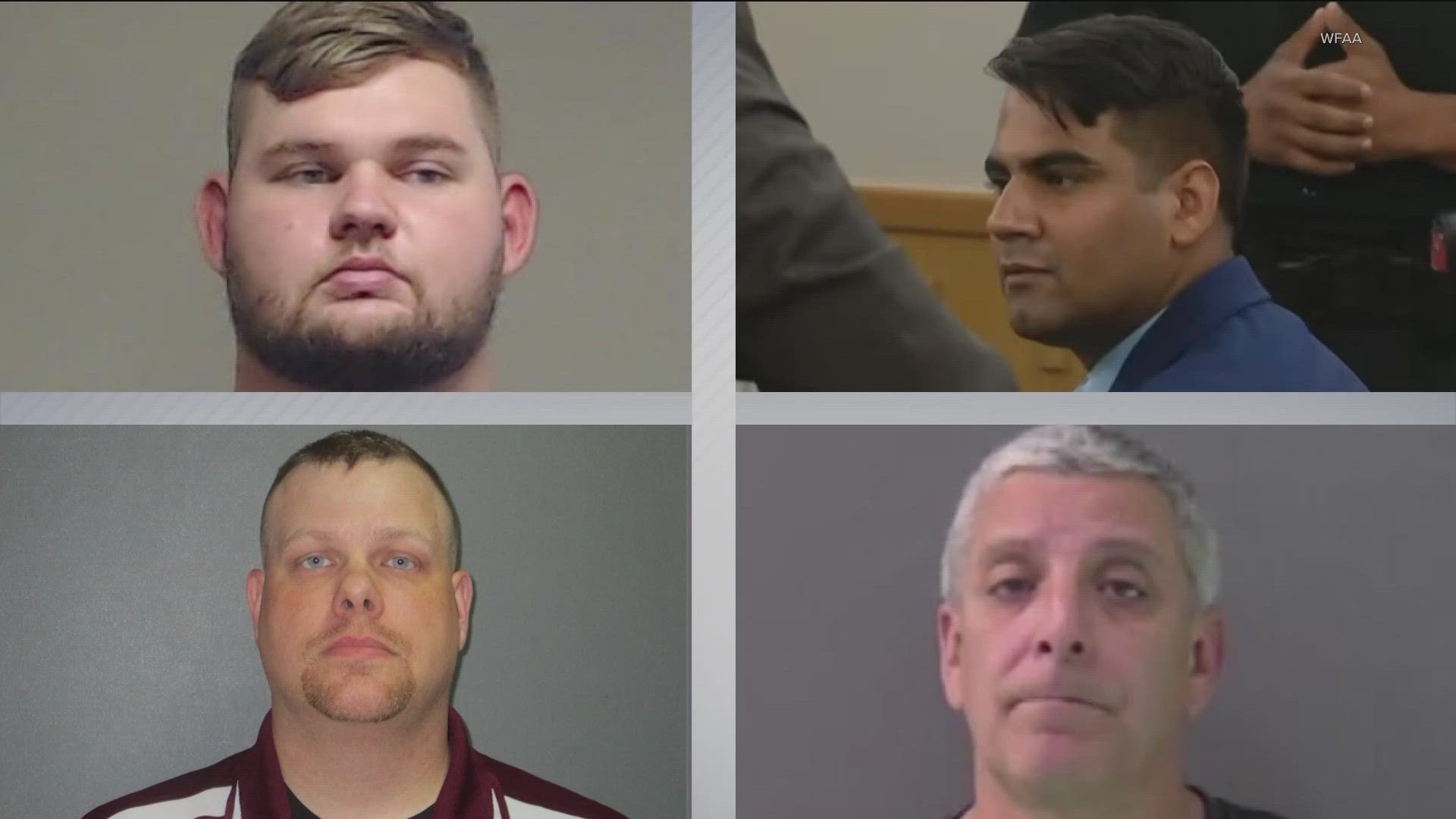AUSTIN, Texas — The social justice movement of 2020 placed a new focus on police accountability, leading to what experts say are more frequent criminal charges against officers. Meanwhile, the murder trial of Austin Police Officer Christopher Taylor – whose shooting of Michael Ramos resulted in a deadlocked jury – has placed a new emphasis on prosecutions of police, locally and beyond.
KVUE Defenders Senior Reporter Tony Plohetski examined what has happened in high-profile police shooting cases across Texas once they went to a jury.
Nearly one year ago, inside a Tarrant County courtroom, a jury reached a guilty verdict against Fort Worth Police Officer Aaron Dean and a nearly 12-year sentence for murder. In 2019, Dean shot and killed Atatiana Jefferson inside her mother’s home after prosecutors say he ordered her to drop a gun, then instantly fired.
Months earlier, in a Houston court, a Harris County jury acquitted Officer Juan Delacruz in the death of Pamela Turner, a woman he was trying to arrest on outstanding warrants. He said he fired after she grabbed his Taser and used it on him.
These are two different results when two controversial police shootings went to trial in Texas.
No organization in Texas tracks how many lethal on-duty shootings have gone to trial or the outcomes. But the KVUE Defenders consulted with police unions, which typically provide lawyers for police, and police watchdog groups and identified seven such cases in the past five years. Among them, convictions were rare.
In 2018, a Dallas jury convicted a Balch Springs officer in the shooting death of a 15-year-old and sentenced him to a decade in prison.
The other four cases that have gone to trial include a former Temple police officer who was found not guilty.
They also include a former Burnet police officer who was acquitted on a murder charge, but the jury deadlocked on a manslaughter charge. The district attorney told the Defenders that prosecutors plan to retry that case.
The other cases include a Wolfe City police officer who shot a man outside a convenience store and an Arlington officer who shot and killed a woman while attempting to shoot a dog.
Experts say in the three years since protests poured into streets across the nation, prosecutors still face hurdles in convicting police officers.
Jennifer Laurin is a professor at the University of Texas School of Law who has worked in police accountability.
"There are almost guaranteed to be some set of facts that the defense would use to support an assertion that the use of force was justified in some way,” Laurin said.
The issue of self-defense may be one of the biggest hurdles for prosecutors, but they also have the challenge that key witnesses are usually fellow officers of the defendant who either saw what happened or investigated the case.
Kate Levine is a New York law professor who studies police prosecutions.
“Certainly, you often are going to have other police officers testify in favor of their brothers on the job, brothers and sisters on the job,” Levine said, adding, "There is almost a sense in some of these cases that the witnesses that the prosecution has to use may be adverse to them, even though they are the ones with the relevant knowledge."
What’s uncertain in the aftermath of the social justice movement of 2020 is the issue of juror sentiment toward officers. Traditionally, experts believed jurors could be more sympathetic toward police officer defendants.
Levine said that may be changing.
"It is hard to imagine that anyone living in America today is not more informed about the complicated and nuanced role police play in our society than maybe they were 10 years ago,” Levine said.

